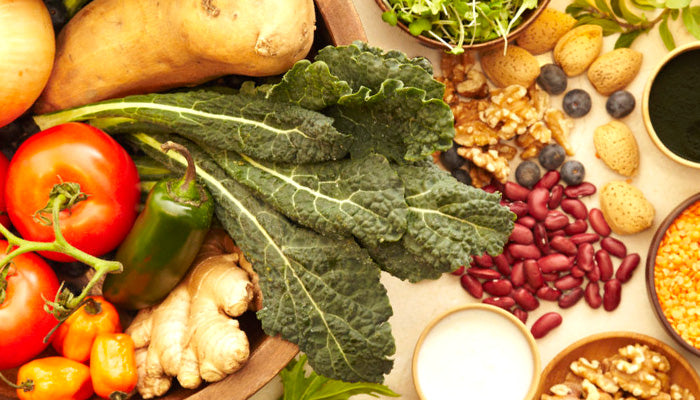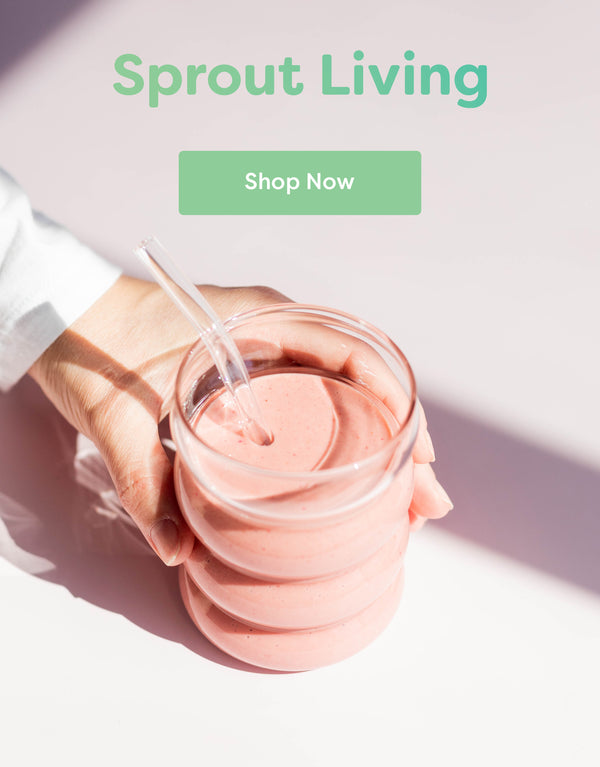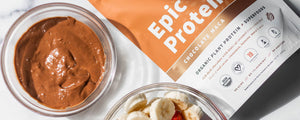
10 Vegan Brain Foods to Incorporate Into Your Diet
Do most of your mornings start with a frantic search for the car keys or walking out the door without the lunch you spent so much time preparing the night before? It happens to the best of us. You might be thrilled to learn, however, that research has proven that certain foods can help to ward off brain fog as well as more serious cognitive issues such as age-related memory loss and neurodegenerative diseases including dementia and Alzheimer’s.
Food can directly affect everything in our bodies from our mood and energy levels to our ability to process thoughts.
Yes, eating right isn’t only vital for your physical health, but your mental health as well. Food can directly affect everything in our bodies from our mood and energy levels to our ability to process thoughts. Similar to your heart, lungs and muscles, your brain, too, requires specific nutrients, and good nutrition can play a huge role in preserving and boosting memory as well as enhancing focus and functionality.
With this in mind (pun intended), pay more attention to the foods you eat, rather than being consumed with cutting carbs or calories. Focus on filling your gut with nutrient-dense, whole foods that will help you to thrive both physically and mentally. Try to regularly consume several of the following vegan “brain foods”. It will, quite literally, be one of the smartest habits you pick up.
Leafy Green Vegetables
Leafy green vegetables such as spinach and kale are loaded with vitamin K and powerful antioxidants, and they’ve been shown to protect the brain from toxic free radicals and slow cognitive decline. A study published by Rush University Medical Center revealed that those who consumed 1 to 2 servings of leafy greens each day had the mental ability of a person nearly 11 years younger than those who consumed none!
Leafy green vegetables such as spinach and kale are loaded with vitamin K and powerful antioxidants, and they’ve been shown to protect the brain from toxic free radicals and slow cognitive decline. A study published by Rush University Medical Center revealed that those who consumed 1 to 2 servings of leafy greens each day had the mental ability of a person nearly 11 years younger than those who consumed none!
Chia Seeds
While you’ve likely heard that walnuts are good brain food, chia seeds are even better. Chia seeds are a much more condensed source of omega-3 fatty acid, with 8x the amount of EFA’s found in salmon ounce per ounce. You can sprinkle chia seeds on pretty much anything (think smoothies, oatmeal, salads, etc.) and reap their rewards.
While you’ve likely heard that walnuts are good brain food, chia seeds are even better. Chia seeds are a much more condensed source of omega-3 fatty acid, with 8x the amount of EFA’s found in salmon ounce per ounce. You can sprinkle chia seeds on pretty much anything (think smoothies, oatmeal, salads, etc.) and reap their rewards.
Chia seeds are a much more condensed source of omega-3 fatty acid, with 8x the amount of EFA’s found in salmon ounce per ounce.
Avocados
Avocados are mighty, delicious and certainly all the craze right now (a quick Google search of ‘avocado toast’ could keep us occupied for days). They’re also great sources of fiber, potassium, vitamins C, K, folate and B6, all of which help to immensely promote cognitive health. Additionally, the healthy fat content in avocados prevents the hardening of blood vessels, which assures proper blood supply to both the heart and brain.
Avocados are mighty, delicious and certainly all the craze right now (a quick Google search of ‘avocado toast’ could keep us occupied for days). They’re also great sources of fiber, potassium, vitamins C, K, folate and B6, all of which help to immensely promote cognitive health. Additionally, the healthy fat content in avocados prevents the hardening of blood vessels, which assures proper blood supply to both the heart and brain.
Goji Berries
These remarkable berries, sometimes also referred to as wolfberries, are loaded with antioxidants. Aside from a plethora of other health benefits, goji berries have been shown to protect the mind against degenerative disorders. Enjoy them by the handful or toss them into your morning smoothie or breakfast bowl!
These remarkable berries, sometimes also referred to as wolfberries, are loaded with antioxidants. Aside from a plethora of other health benefits, goji berries have been shown to protect the mind against degenerative disorders. Enjoy them by the handful or toss them into your morning smoothie or breakfast bowl!
Blueberries
High amounts of flavonoid antioxidants are responsible for giving blueberries their brain-enhancing fame. Studies have shown a positive link to improved memory, learning and general cognitive function.
High amounts of flavonoid antioxidants are responsible for giving blueberries their brain-enhancing fame. Studies have shown a positive link to improved memory, learning and general cognitive function.
Tomatoes
Tomatoes are chalk full of a powerful antioxidant known as lycopene, which has been found to help protect against free radical damage to cells, specifically the kind which occurs in the development of dementia and Alzheimer's. Opt for a bowl of cherry tomatoes for a quick and healthy office snack or whip up a fresh batch of salsa to serve with dinner.
Tomatoes are chalk full of a powerful antioxidant known as lycopene, which has been found to help protect against free radical damage to cells, specifically the kind which occurs in the development of dementia and Alzheimer's. Opt for a bowl of cherry tomatoes for a quick and healthy office snack or whip up a fresh batch of salsa to serve with dinner.
Pumpkin Seeds
Pumpkin Seeds are one of nature’s best sources of zinc, a vitamin linked to enhancing memory and thinking skills. Munch on pumpkin seeds by the handful or toss them into soups and homemade granolas.
Pumpkin Seeds are one of nature’s best sources of zinc, a vitamin linked to enhancing memory and thinking skills. Munch on pumpkin seeds by the handful or toss them into soups and homemade granolas.
Pumpkin Seeds are one of nature’s best sources of zinc, a vitamin linked to enhancing memory and thinking skills.
Sunflower Seeds
Sunflower seeds contain a plethora of protein, omega fatty acids, B vitamins and tryptophan. These nutrients have been shown to lower the risk of Alzheimer’s, as well as fight off depression. You’ll get the most benefits from sunflower seeds when you eat them raw and unsalted. Add them to salads, stirred-fried veggies and other favorite dishes.
Sunflower seeds contain a plethora of protein, omega fatty acids, B vitamins and tryptophan. These nutrients have been shown to lower the risk of Alzheimer’s, as well as fight off depression. You’ll get the most benefits from sunflower seeds when you eat them raw and unsalted. Add them to salads, stirred-fried veggies and other favorite dishes.
Cranberries
Cranberries contain a high concentration of ursolic acid, a compound that has shown to protect brain cells from injury and degeneration, and possibly even reverse damage. To get the most from these seasonal red berries, eat them fresh or sun-dried with no added sugar.
Cranberries contain a high concentration of ursolic acid, a compound that has shown to protect brain cells from injury and degeneration, and possibly even reverse damage. To get the most from these seasonal red berries, eat them fresh or sun-dried with no added sugar.
Garbanzo Beans
Good news, fellow hummus addicts! Garbanzo beans, or chickpeas, are a prime food source for magnesium, a key ingredient in keeping brain cell receptors functioning and sending messages timely. Magnesium also helps to relax blood vessels, allowing for increased blood flow to the brain.
Good news, fellow hummus addicts! Garbanzo beans, or chickpeas, are a prime food source for magnesium, a key ingredient in keeping brain cell receptors functioning and sending messages timely. Magnesium also helps to relax blood vessels, allowing for increased blood flow to the brain.
As you can see, you don’t have to sacrifice taste to enjoy the benefits of improved health and brainpower. Don't forget that in addition to a healthy diet, exercise, too, helps to keep our brains sharp and performing at its best. Research has proven that regular exercise improves cognitive function, slows down the mental aging process and helps us to overall process information more effectively day in and day out.






